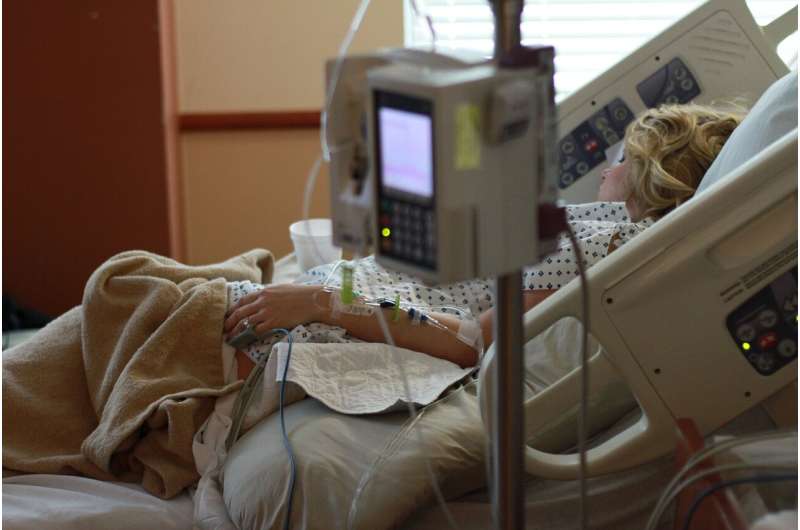This article has been reviewed according to Science X's editorial process and policies. Editors have highlighted the following attributes while ensuring the content's credibility:
fact-checked
trusted source
proofread
Empathetic cancer clinicians promote psychological well-being in breast cancer patients, says study

Clinicians who show more empathy promote better psychological health among breast cancer patients, according to a Rutgers study examining how oncology doctors facilitate psychological well-being.
"Our findings suggest that provider communication is a key component to reducing uncertainty, and thus providers play a key role in helping to facilitate psychological well-being," said Liesl Broadbridge, a doctoral degree candidate at the Rutgers School of Communication and Information (SC&I) and the lead author of the study published in Patient Education and Counseling.
Researcher findings suggest that discussing uncertainties with patients and being empathetic to their concerns is critical to their healing and recovery.
"Our findings are directly applicable as targets for communication training modules for health care providers, because by continuing to advance skills in empathic communication, clinicians can enhance the health care experiences of their patients," Broadbridge said.
According to research, patients with breast cancer are at significant risk for developing symptoms of anxiety and depression related to their cancer diagnosis.
"As health communication researchers, we are interested in how health care providers can communicate in ways that help their patients cope with/manage their illness and support their psychological health," said Broadbridge.
The research team also investigated how the process of managing psychological well-being differs depending on whether the patients they surveyed were currently undergoing cancer treatment or had already completed their treatments.
She said current and former patients experience different appointment types (i.e., treatment decision-making for current patients, watchful waiting for former patients). Therefore, they have had different lengths of time to adjust to diagnoses and, potentially, have different relationships with their providers (i.e., more or less time to develop a relationship with the health care team).
"Although our findings were true for both current and former patients, the strength of the relationship between uncertainty and psychological adjustment was stronger for former patients than for current patients," Broadbridge said. "This means that cancer care teams must continue to focus on uncertainty and issues regarding psychological health in cancer monitoring appointments and beyond the initial diagnosis/treatment phases of breast cancer survivorship."
The researchers used online surveys to assess current and former breast cancer patients' perceptions of their oncologists' communication, the uncertainty they have about their diagnosis/treatment and how they are coping with the illness.
They recruited 121 current and 187 former breast cancer patients to participate in the study through the Love Research Army, a research registry hosted by the Dr. Susan Love Foundation for Breast Cancer Research, a national advocacy organization for breast cancer patients, survivors, and at-risk family members.
The authors partnered with this community organization to broaden the sample of participants beyond the local New Brunswick area and to contribute to the larger conversations about cancer communication. The team also partnered with Rutgers Cancer Institute.
"The findings of this study highlight the importance of both eliciting and addressing breast cancer patients' uncertainty throughout the cancer trajectory to facilitate psychological adjustment," Broadbridge said. "This is important because it underscores the role that clinicians play in helping patients manage both their physical and emotional/psychological health after breast cancer diagnosis."
More information: Elizabeth Broadbridge et al, Facilitating psychological adjustment for breast cancer patients through empathic communication and uncertainty reduction, Patient Education and Counseling (2023). DOI: 10.1016/j.pec.2023.107791


















